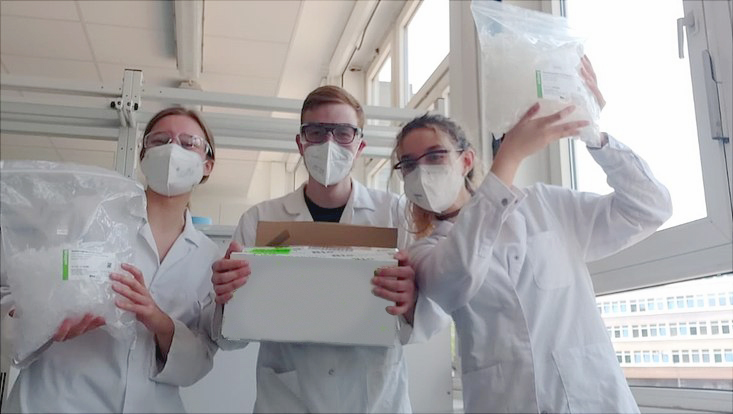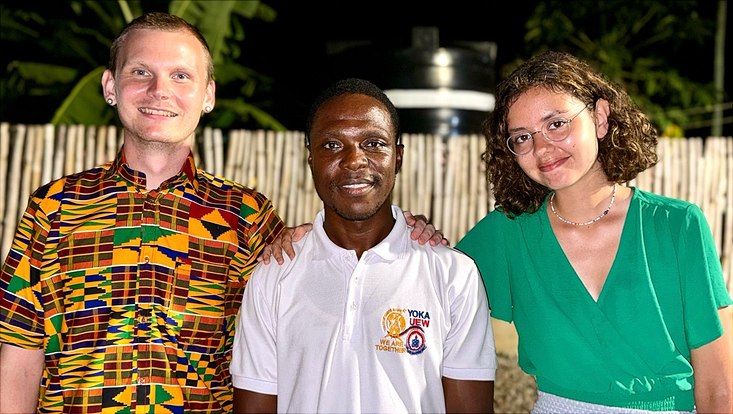Transport transformation, biofuel, and rescuing historical documentsNew Funding Round for Student Research Groups
29 June 2021, by Christina Krätzig

Photo: iGEM Hamburg
For the second time, Universität Hamburg is funding student research projects as part of the Excellence Strategy of the Federal and State Governments. Starting immediately, 9 projects will receive support for one year. The University is granting about €60,000. Below we introduce 3 of the projects.
The development of musicology in the nineteenth century

In the Bergedorf district of Hamburg, a previously buried treasure awaits musicologists: the estate of Friedrich Chrysander, born in 1826. Chrsyander ran a sheet-music printing shop there and published music journals as well as, among other things, the works of Georg Friedrich Händel. He was indispensable to the music world and musicological discourse of the nineteenth century. His estate includes copies of sheet music and roughly 400 letters, for example from the Hamburg composer Johannes Brahms. As part of their research project, Johannes Schröder and Johanna Backhaus from the Institute of Historical Musicology at Universität Hamburg want to digitalize the documents in the family’s estate and ensure proper storage. In a second phase, they want to study the handwritten material and then, in a third phase, organize a workshop for students to which they would also invite external researchers.
The fight for new transport concepts and the future of mobility

Against the backdrop of a global climate crisis and 3,000 deaths in traffic accidents annually in Germany, the centrality of the car in the transport system is increasingly coming under fire. The demands for a change in mobility are growing louder and in many places, alternative mobility concepts are being explored. Implementing these, however, is a frequently arduous, conflict-ridden matter. Sociology students Eva Gaßen and Corinna Endreß want to find out why. They will categorize and compare roughly 10 Hamburg initiatives, for example the Ottensen macht Platz (“Ottensen makes room”) initiative. Who is involved and why? What conflicts arise and who gets involved in these? And do these conflicts ultimately lead to more environmentally-friendly mobility or to deeper divisions? The upcoming researchers will seek answers to these questions using, among other tools, guideline-based digital interviews.
Biofuel production using bacteria
Biofuel plays an important role in the economy’s shift to regenerative energy. Yet the cultivation of energy-producing plants such as rapeseed or corn requires space—space that is also needed for food and feed plants.
This has inspired 20 students in various degree programs in the Faculty of Mathematics, Informatics and Natural Sciences to research new types of biofuel production. They want to experiment with cyanobacteria. These bacteria appear in water, extract CO2 from the atmosphere, and build biomass that can be converted into biofuel. So far, however, the yield has been minimal. Therefore, the students are conducting lab experiments in which they add enzymes that have not previously appeared in cyanobacteria. Their goal is to stimulate the bacteria to produce high-quality biomass, meaning biomass that contains more energy.
The students also want to develop creative techniques that teams working in biotechnology can use to develop their own ideas as well as forge new paths in PR. With their project, they are taking part in 2021 in the largest student research competition in the field of synthetic biology, the International Genetically Engineered Machine Competition (iGEM).


